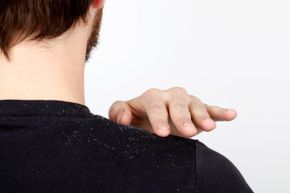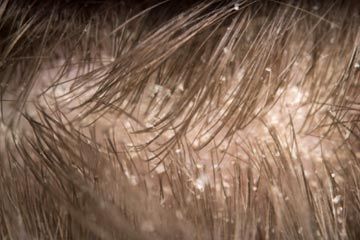Although it's rarely a serious condition, dandruff can be annoying and embarrassing. If your solution to those ever-present white flakes has been to avoid wearing dark shirts, it may be time to consider a few reasons why dandruff forms and how it can be avoided.
This itchy, dry condition often begins in early adulthood and lasts through middle age. However, older adults can also get dandruff, and sometimes dandruff can last for your entire life [source: Mayo Clinic].
Advertisement
Dandruff can be caused by several different conditions, ranging from simple dry skin to disorders like eczema and psoriasis. Some people with extremely oily skin or skin that reacts strongly to hair care products may also develop dandruff [source: Mayo Clinic]. Only a dermatologist can determine what is causing a particular case, so if your dandruff doesn't go away with basic treatment, it may be time to schedule an appointment with a doctor. He or she can recommend an over-the-counter shampoo or prescribe a medicated shampoo or lotion.
Most dandruff cases will go away with home treatment, including washing hair with a shampoo designed to eliminate dandruff. Such antidandruff shampoos may include a variety of ingredients, so if you've tried one and been unsuccessful, switching to a new shampoo with a different active ingredient may help. If you're concerned about the chemicals in your antidandruff shampoo, alternate with a regular shampoo to lessen the effects [source: WebMD]. Make sure that you wash your hair every day -- this will help prevent oil and skin cells from building up and causing dandruff.
Although it can be frustrating and embarrassing, dandruff is typically easy to treat. The proper treatment, however, can depend on what the underlying cause of your dandruff is. Keep reading to learn more about the causes of dandruff.
Advertisement

